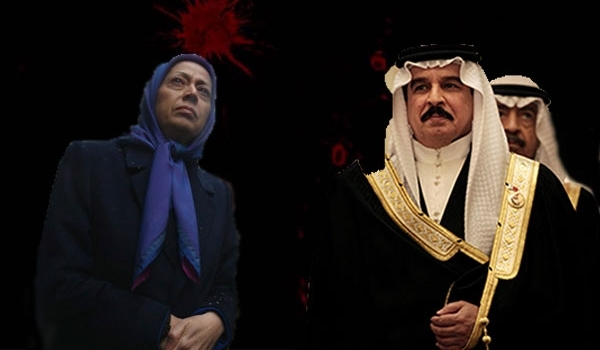
RNA - "The Al Khalifa regime has recently asked the MKO terrorist group to cooperate with the Manama government to confront Iran," a Bahraini informed source, speaking on the condition of anonymity, told FNA on Sunday.
He noted that the Bahrain intelligence service believes that Iran is the main supporter of the Manama government's opponents and for the same reason it supports the MKO that is an armed opposition to the Islamic Republic and has assassinated over 12,000 citizens and officials.
"The Manama government has sent Bahraini lawmaker Jamal Bouhassan to Paris to meet MKO leaders to the same end," the source said.
The source also revealed that Bahraini journalist Hani al-Fardan has been arrested for publishing an article against MKO.
Al-Fardan has been arrested over an article during which he criticized Bahraini lawmakers for supporting the MKO terrorist group.
Al-Fardan, the Arabic-language Al-Wasat journalist, was interrogated over his article that criticized the Salafist Member of Parliament, Jamal Bouhassan, who attended the MKO meetings in Paris, and disclosed how Bahrain and its Parliament support the MKO terrorist organization's activities against Iran.
The MKO, founded in the 1960s, blended elements of Islamism and Stalinism and participated in the overthrow of the US-backed Shah of Iran in 1979. Ahead of the revolution, the MKO conducted attacks and assassinations against both Iranian and western targets.
The group started assassination of the citizens and officials after the revolution in a bid to take control of the newly-established Islamic Republic. It killed several of Iran's new leaders in the early years after the revolution, including the then President, Mohammad Ali Rajayee, Prime Minister, Mohammad Javad Bahonar and the Judiciary Chief, Mohammad Hossein Beheshti who were killed in bomb attacks by the MKO members in 1981.
The group fled to Iraq in 1986, where it was protected by Saddam Hussein and where it helped the Iraqi dictator suppress Shiite and Kurd uprisings in the country.
The terrorist group joined Saddam’s army during the Iraqi imposed war on Iran (1980-1988) and helped Saddam and killed thousands of Iranian civilians and soldiers during the US-backed Iraqi imposed war on Iran.
Since the 2003 US invasion of Iraq, the group, which now adheres to a pro-free-market philosophy, has been strongly backed by neo-conservatives in the United States, who argued for the MKO to be taken off the US terror list.
The US formally removed the MKO from its list of terror organizations in early September, one week after Secretary of State Hillary Clinton sent the US Congress a classified communication about the move. The decision made by Clinton enabled the group to have its assets under the US jurisdiction unfrozen and do business with the American entities, the State Department said in a statement at the time.
In September 2012, the last groups of the MKO terrorists left Camp Ashraf, their main training center in Iraq's Diyala province. They have been transferred to Camp Liberty. Hundreds of the MKO terrorists have now been sent to Europe, where their names were taken off the blacklist even two years before the US.
The MKO has assassinated over 12,000 Iranians in the last 4 decades. The terrorist group had even killed large numbers of Americans and Europeans in several terror attacks before the 1979 Islamic Revolution.
Some 17,000 Iranians have lost their lives in terror attacks in the 35 years after the Revolution.
The Bahraini regime has been suppressing peaceful demonstrations by anti-government protesters across Bahrain since mid-February 2011.
Violence against the defenseless people escalated after a Saudi-led conglomerate of police, security and military forces from the Persian Gulf Cooperation Council (PGCC) member states - Saudi Arabia, Kuwait, the United Arab Emirates, Oman and Qatar - were dispatched to the tiny Persian Gulf kingdom on March 2011, to crack down on peaceful protestors for the Manama regime.
So far, hundreds of protesters have been killed, hundreds have gone missing and thousands of others have been injured by the Bahraini and Saudi soldiers. Thousands of people, including opposition party and religious leaders as well as renowned human rights activists, have been arrested while hundreds more have been sent to exile. All international human rights bodies have condemned the Al-Khalifa regime for exercising extreme violence against peaceful protests.
R111/108/C/